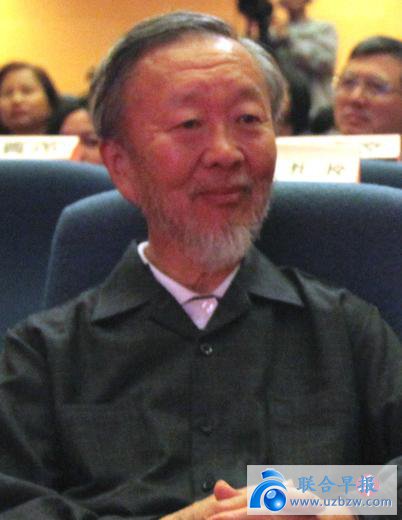 As early as 1966, Kao Kung, who proposed the basic principle of the application of optical fiber in communication and later served as the president of the Chinese University of Hong Kong, passed away in Hong Kong yesterday at the age of 84.(China News Service)
As early as 1966, Kao Kung, who proposed the basic principle of the application of optical fiber in communication and later served as the president of the Chinese University of Hong Kong, passed away in Hong Kong yesterday at the age of 84.(China News Service)
Kao Kun, the Nobel Prize winner in physics, the father of optical fiber, and former president of the Chinese University of Hong Kong, passed away yesterday (September 23) in Hong Kong at the age of 84.
Based on reports from China News Service and World Wide Web, Hong Kong Chief Executive Carrie Lam Cheng Yuet-ngor said that Professor Kao is the pride of Hong Kong people and deeply saddened by his passing away.
Professor Duan Chongzhi, President of CUHK, said that Professor Gao is an outstanding scholar and a visionary leader in the field of higher education.Gao Kun, as the third president of CUHK, actively promoted the overall development of the university during his tenure, established a solid foundation, opened up development space for talented people, and achieved outstanding achievements; Gao Kun strives for innovation in scientific research and is determined to pursue excellence.Research in this field has contributed to the development of the Internet and written a new page in the history of human communication.
Optical Fiber Research Leads to Internet Development
Gao Kun was born in Shanghai in November 1933, and his ancestral home is Jinshan City, Jiangsu Province.In 1949, Kao entered St. Joseph's College in Hong Kong, and then went to the UK to study and work.
As early as 1966, he first proposed the basic principle of the application of optical fiber in communication, and developed the auxiliary system required to realize optical communication, which led to the emergence of the Internet.His theory was not recognized at first, and he was even criticized as a fool's dream, but he did not give up and made great achievements through continuous and unremitting research.
In 1970, Kao returned to Hong Kong to serve as the founding professor of the Department of Electronics of the Chinese University of Hong Kong. From 1987 to 1996, he served as the president of the University. In 1996, he was elected as a foreign academician of the Chinese Academy of Sciences.
Because of the Nobel Prizes in science, it takes a long time for theories to be confirmed.In 2009, more than 40 years after Kao first proposed optical fiber communication, he finally won the Nobel Prize in Physics. The Nobel Committee praised him for his pioneering achievements in transmitting light in fibers to achieve optical communication.
In 2010, Kao successively won the Queen's Birthday Knight Order and the Hong Kong Grand Bauhinia Medal.
In early 2004, Kao Kung was confirmed to be suffering from early Alzheimer's disease. In order to help Alzheimer's patients and their families, he and his wife Huang Meiyun later established the Kao Kung Charity Foundation in 2010. In his later years, he mainly lived in Hong Kong.Lives in Mountain View, California, USA.
Kung Kao and his wife wrote in an open letter in 2010: (Kao Kung) studied in high school in Hong Kong, served as a coach and principal at CUHK, and retired here. He has lived in Hong Kong for more than 30 years and is a veritable Hong Kong.people.
In her eulogy, Carrie Lam said: Professor Kao is a pioneer in the development and application of optical fiber technology, which has brought revolutionary changes to modern communication technology and made great contributions to Hong Kong, the world, and even human beings around the world.She also praised Professor Kao for his vision for the development of scientific research in Hong Kong, and for promoting the establishment of the Hong Kong Science Park, laying a solid foundation for the development of innovation and technology in Hong Kong today.
She finally said: I am deeply saddened by his passing away.On behalf of the Hong Kong Special Administrative Region Government, I would like to extend my deep condolences to his family.



